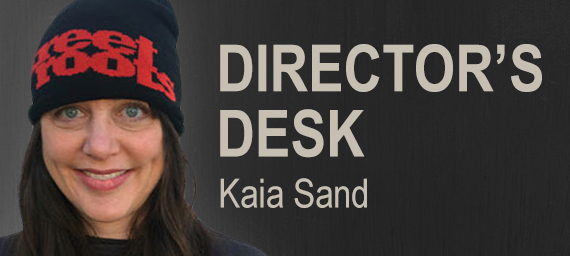A lot gets written in a day, and on Tuesday, Sept. 4, Donald Trump managed to punch out 16 wild and furious tweets. But among this frenzy, it’s worth pausing to notice when a body of writing tilts society a bit more justice, and that’s what the Ninth U.S. Circuit Court of Appeals did that same day. Judge Marsha Berzon wrote an opinion upholding the Martin v. City of Boise decision, and in doing so, she reminded us that the problem is not the poor, but poverty.
Citing the Eighth Amendment to the Constitution, Berzon wrote that criminalizing people in Boise for being homeless is cruel and inhumane when there aren’t enough shelter beds for them – similar to the stance that the Department of Justice took in 2015 when it issued a statement of interest on the same case (then titled Bell v. City of Boise).
Let the logic of the decision reverberate: Criminalizing people for being homeless amounts to cruel and inhumane punishment.
“As long as there is no option of sleeping indoors,” Berzon wrote, “the government cannot criminalize indigent, homeless people for sleeping outdoors, on public property, on the false premise they had a choice in the matter.”
But there’s more nuance to the decision. While a district court dismissed this lawsuit in 2015 (as Bell v. City of Boise) on grounds that there were enough shelter beds for homeless people on the streets, the Appeals Court overturned that decision, showing that this is not a simple mathematical equation to balance. Even the appearance of available shelter beds needs to be understood in context. People might not have access to those beds because of particular restrictions – from the times of day shelters can be accessed to the length of stay an individual is allowed to stay. In certain instances, Berzon wrote, religious expectations pose further restrictions.
The Ninth Circuit Court is big, covering the western region of the United States, and although the decision addressed a case in Boise, it was filed in the federal courthouse in downtown Portland. The implications of Martin v. City of Boise matter all over the West Coast. That’s why the city of Portland attorneys were scrambling to argue that it doesn’t apply to Portland, where the city laws against camping are eerily similar to those in Boise.
Indeed, there is a pending court case in the Oregon court of appeals – State of Oregon v. Alexandra Chanel Barrett – that challenges the Portland public camping ordinance, which makes it illegal to camp on public property or public right of way (14A.50.020). While the federal decision in the Ninth Circuit does not determine the outcome, it could influence it, because the Barrett case is based on the same argument that targeting people who are homeless is unconstitutional as cruel and inhumane punishment.
And if you feel a glimmer of a sense that this should not matter – after all, all those tents are out there, people are camping – remember this: People never know when they might get swept. And each time they are, our city take steps backward, because people are traumatized that much more. The Martin v. City of Boise decision reminds us that, yes, people are traumatized because these actions are cruel and inhumane under the U.S. Constitution. We are criminalizing the fact that people have to exist somewhere, and this is a society structured against the poor.
The same applies to our approach toward mental illness and drug addiction. We live in a society where people are reeling.
FURTHER READING: Policing the poor just means there’s so much more work to do (Director's Desk)
If you have guests who ask what is wrong when they look out over the humanity under the patchwork of tarps and tents, you could respond: deep inequality. This is West Coast inequality. Seattle, San Francisco, Los Angeles – these tents are all of us. And even if we have enough shelter beds for everyone, that deep inequality would still exist. It would still serve us well to mount tents as monuments to the problem, because even if people are indoors sleeping on mats, they would be no less poor. They would just be out of sight.
Here in Portland, one full-time minimum-wage job is not enough to afford housing. A person would have to work two full-time minimum-wage jobs to afford to live in this city. The average household led by an African-American or Native American Portlander, or a single mother, cannot afford an apartment in this city. It is deeply unjust.
In November, there will be some ballot measures that give us opportunities to make progressive steps. Ballot measures 26-199 and 102 bring more money for deeply affordable housing to the region, and allow that funding to be more effectively applied. Ballot Measure 26-201 addresses climate change – which affects everyone, but affects the poor more aggressively – and ties our solutions to more and better jobs. And if any candidates are arguing for law and order to disappear the poor from public view – well, recall this Ninth Circuit Court decision: that is cruel and inhumane punishment.
FURTHER READING: ACLU of Oregon challenges efforts to criminalize homelessness
We have a lot of tents in this city because a lot of people are homeless. If it feels extreme, it is extreme – up and down the West Coast. But the extremity does not rest in the people who live in the tents. The extremity exists in all of us: this is who we are, a deeply unequal society.
Kaia Sand is the executive director of Street Roots. You can reach her at kaia@streetroots.org. Follow her on Twitter @mkaiasand.


